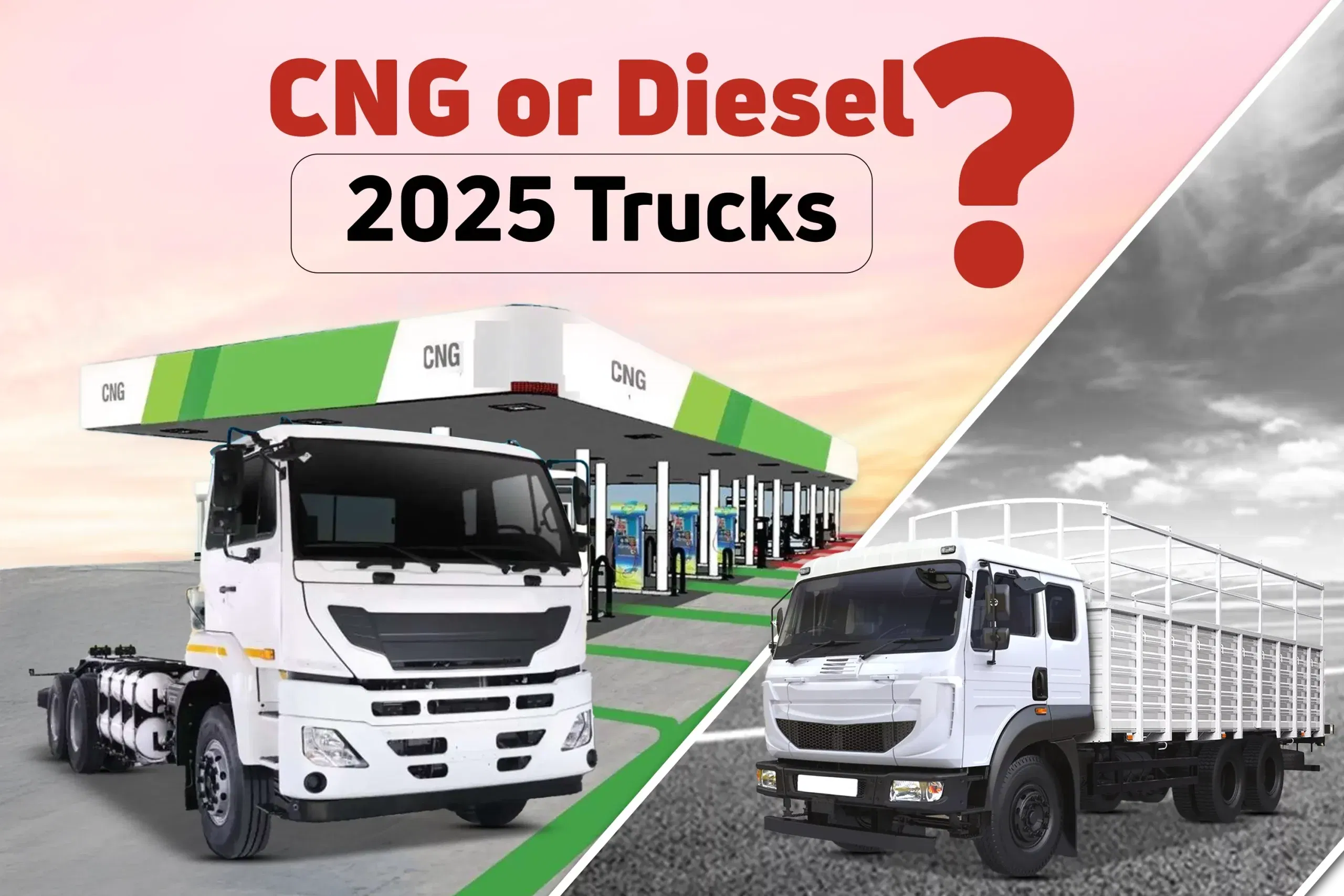In 2025, fleet buyers face a direct choice: BS6 diesel trucks or CNG commercial vehicles. Both fuel types meet updated emission rules, but they differ in how they deliver power, manage running costs, and support long-term operations. Comparing these segments, truck owners usually narrow their inquiry to just a few tight dependencies: fuel cost, mileage output, initial price, and performance stability.
1. Mileage Comparison
Mileage shapes operating cost; therefore, usually, buyers put fuel efficiency at the center of their decision. Because the combustion process remains cleaner and more uniform, CNG trucks usually return better mileage in urban duty cycles. As long as the load stays moderate, mileage usually remains consistent. BS6 diesel trucks return more torque at lower RPM, which maintains efficiency both on highways or steep gradients. Diesel still has an edge in very heavy haul conditions.
2. Price & Ownership Cost
Initial pricing introduces the first constraint. CNG trucks typically enter the market at a lower acquisition cost, and the price of CNG fuel remains comparatively low across most regions, which can often reduce cost per kilometer. BS6 diesel trucks are costlier due to the use of advanced emission hardware like DPF and SCR systems. Maintenance for these components may increase the long-term cost. However, diesel engines usually have longer lives under high-duty cycles, so the lifespan often can offset upfront cost depending on the pattern of the fleet.
3. Performance & Capability
Performance relies on the magnitude of power output that meets daily transport needs.
Diesel engines produce strong low-end torque that supports heavy cargo, long routes, and difficult terrains. The throttle response remains predictable and stable.
CNG powertrains offer smoother operation, less vibration, and lower noise. The performance suits city logistics, last-mile delivery, and short-range commercial movement.
4. Emissions & Environmental Impact
Both fuel variants conform to the BS6 norms, but the emissions are different.
CNG trucks emit less particulate matter and less CO₂ per kilometer. The combustion process remains cleaner, which also extends the engine oil life. BS6 diesel trucks depend on complicated after-treatment systems that have to remain clean and calibrated to maintain compliance. For companies that have set sustainability benchmarks, CNG becomes a no-brainer.
5. Overall 2025 Market Outlook
The commercial truck market is split in two ways in 2025. Fleets with city-focused routes lean toward CNG versions for lower running cost and cleaner operation. Fleets with long-haul or heavy-haul duties stick with diesel because of torque, durability, and wider refueling coverage. The decision depends ultimately on operational dependency: type of route, pattern of payload, and fuel availability.
91Trucks is the place to go for all things commercial vehicles. If you need a new or used truck for your business, check it out. We have everything you need, from detailed reviews and exact specs to the best deals that fit your business needs. Stay up to date on the latest news, analysis, and stories from the business.
Follow us on Facebook, Instagram, and LinkedIn, and subscribe to our YouTube channel to get the latest news and videos from experts!










